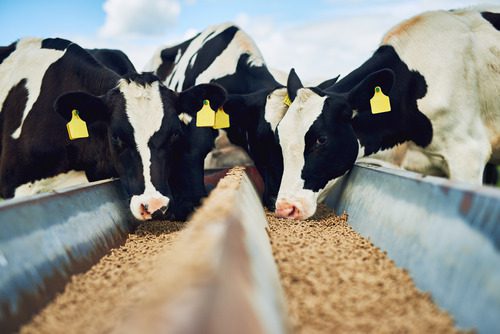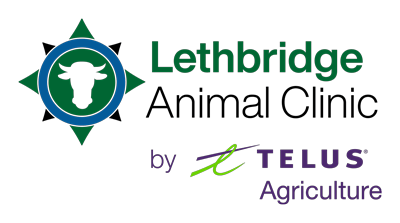Bloat in Cattle: What You Need to Know
Bloat is a condition that can affect cattle, causing their stomachs to swell due to the build-up of gas. This condition is not only uncomfortable for the animal but can also lead to serious health issues if not addressed promptly. It’s essential for cattle owners and caregivers to recognize the signs of bloat, understand its causes, and know when to seek professional help. At Lethbridge Animal Clinic, we’re committed to helping you keep your herd healthy. If you notice any symptoms of bloat in your cattle, call us at (403) 327-4150 for assistance.

Recognizing the Signs of Bloat
Identifying bloat early can be the difference between a manageable situation and a potentially life-threatening emergency. Common signs include:
- A swollen left side, as the rumen expands with gas.
- Discomfort and restlessness.
- Difficulty breathing.
- A decrease in milk production for lactating cows.
- Reduced appetite and water intake.
If you observe these symptoms, it’s critical to act quickly and contact a veterinarian.
Causes of Bloat
Understanding what causes bloat can help prevent its occurrence. Bloat can be classified into two types: frothy bloat and free gas bloat, each with different causes.
Frothy Bloat
This type of bloat occurs when the gas forms into stable foam, preventing cattle from belching it out. It’s often linked to diet, especially when cattle consume high-legume pastures like clover or alfalfa.
Free Gas Bloat
Free gas bloat happens when something obstructs the escape of gas from the rumen. This could be due to cattle eating too quickly, consuming large pieces of feed that block the esophagus, or other physical obstructions.
Prevention Strategies
Prevention is always better than cure, especially with conditions like bloat that can escalate quickly. Here are some strategies to help reduce the risk:
- Gradually introduce cattle to high-risk pastures.
- Ensure access to plenty of clean water.
- Consider feed additives that can help prevent frothy bloat.
- Monitor cattle closely when they are at risk of bloat, especially during transitions to new diets.
When to Contact a Veterinarian
If you suspect your cattle are suffering from bloat, it’s essential to contact a veterinarian immediately. Early intervention can prevent serious complications and even save the animal’s life. At Lethbridge Animal Clinic, our team is experienced in diagnosing and treating bloat in cattle. We understand the urgency of the situation and are here to provide the necessary care and support. Call us at (403) 327-4150 to get help right away.
Supporting Your Cattle’s Health
Aside from managing bloat, there are general practices that can support the overall health and well-being of your cattle including regular health check-ups to manage any on-going or new conditions, balanced nutrition tailored to your cattle’s specific needs, and adequate shelter and space to roam.
By staying informed and vigilant, you can play a significant role in preventing bloat and other health issues in your cattle. And remember, the Lethbridge Animal Clinic team is always here to support you with expert advice and care. Make sure to reach out if you have any concerns about your herd’s health.
Contact Lethbridge Animal Clinic Today
Bloat in cattle is a serious condition that requires immediate attention. By understanding the signs, causes, and prevention strategies, you can take proactive steps to protect your herd. And remember, the team at Lethbridge Animal Clinic is always here to help. If you suspect bloat or have any concerns about your cattle’s health, call us at (403) 327-4150. Together, we can ensure the health and happiness of your cattle.
